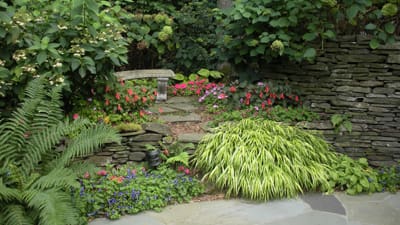 During the warmer months, plants such as shrubs and trees are no longer struggling in the cold winter weather in Bergen County. They now have other things to battle: insects.
During the warmer months, plants such as shrubs and trees are no longer struggling in the cold winter weather in Bergen County. They now have other things to battle: insects.
In order to avoid weakening structure and plant diseases, trees and shrubs must be treated properly.
Pest control for trees and shrubs is absolutely necessary in keeping your New Jersey landscape beautiful and in great condition.
Insects are often times considered to be pests, and rightfully so. While all insects are not detrimental to the health of shrubs and trees, many types are problematic.
Pest control for insects may take a combination of many different methods, and the only way to completely know for sure what will work best for your northern New Jersey landscape is to understand the type of damage and the different kinds of insects, as well as speaking with an experienced tree and shrub care company.
Types of Tree and Shrub Damage Caused by Insects
-
Slow growth
-
Sap flow interference
-
Plant diseases
-
Weakened structure
Identify insects before attempting to get rid of them, as this is essential in determining the longevity of your trees and shrubs. Not all insects harm trees. In fact, some bugs help pollinate shrubs and even ward off other, harmful infects. Therefore, killing all insects without regard to function can actually be detrimental to tree health.
Insects are Divided into Different Categories According to How They Feed
-
Chewing insects- They eat plant tissues like leaves, buds and flowers, leaving uneven margins on the leaves. These insects can include beetles and caterpillars.
-
Sucking insects- These insects such as aphids and leafhoppers feed on the juices of a plant by inserting their beak and sucking out the juice. These pests leave discolored, drooping and wilting leaves as evidence of their feedings.
-
Boring insects- This group of insects includes bark beetles, and they feed and lay eggs in tunnels beneath the bark.
The treatment method used to protect trees from insects will depend on the species involved, the extent of the problem and a variety of other factors specific to the situation. Avoid overwatering your lawn, as this only invites more insects. Also avoid excessive fertilization as this will cause overly rapid growth and, attracting even more pests to your shrubs and trees.
If you have any doubt about the identification of the insects or the proper treatment, it is recommended that you consult a tree and shrub care expert instead of attempting to get rid of the problem yourself. It’s in best practice to find a profession landscaping design company that uses organic lawn care services when dealing with pests so that spraying won’t damage your trees and shrubs even more.
